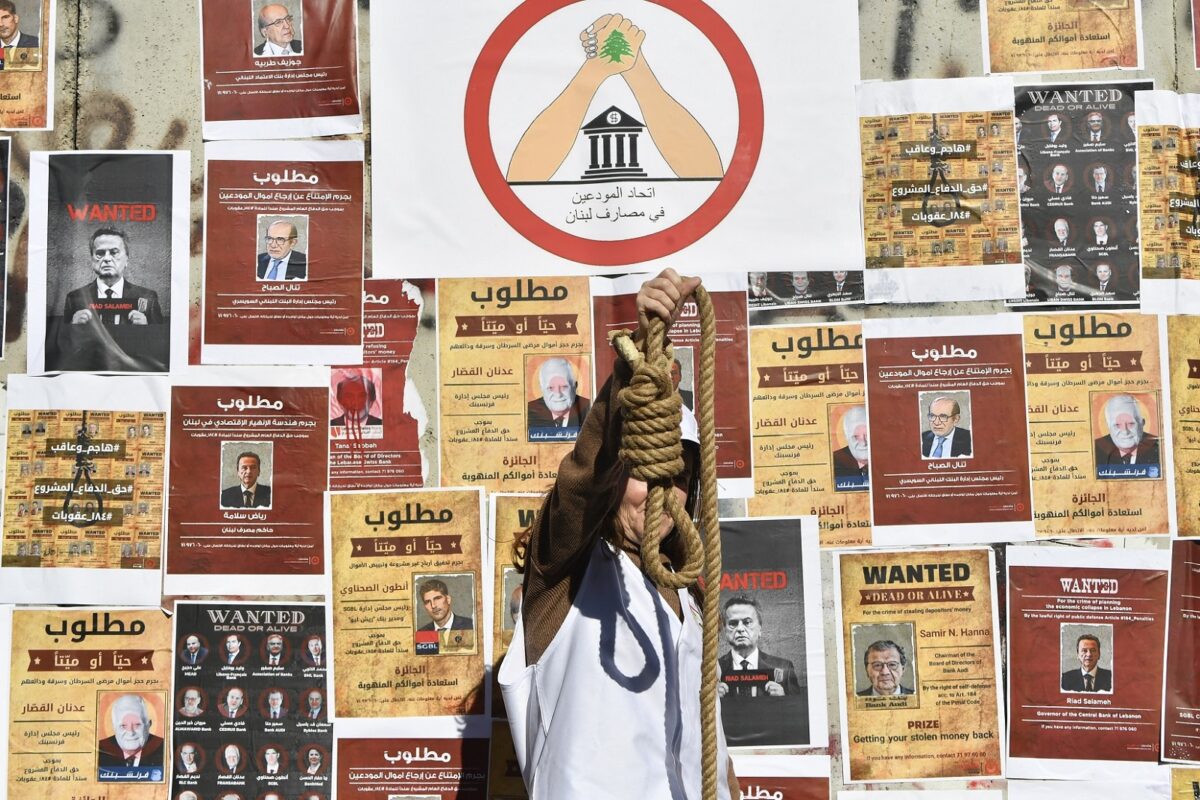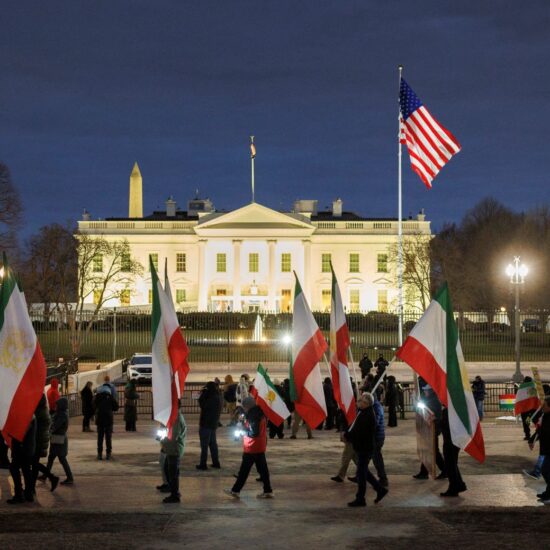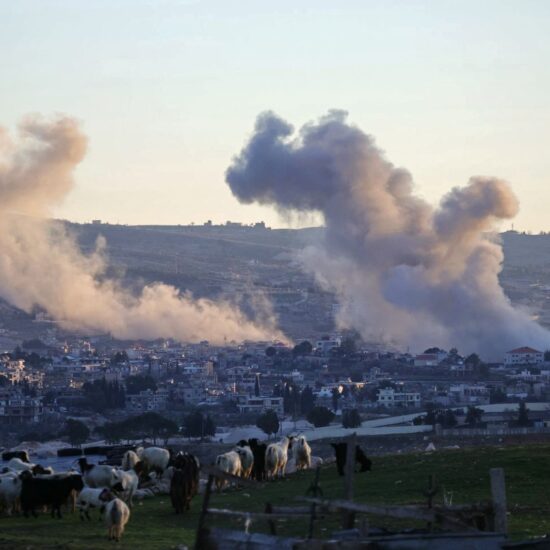
Exploring the legal battles and economic quagmire: How Lebanon's financial system is facing foreign courts and internal turmoil
A class-action lawsuit was filed on April 16th in the United States against the Central Bank of Lebanon (BDL) and several members of the Association of Banks of Lebanon (ABL), who are also Chairmen of the Board of several Alpha Group banks, as well as auditors. They are accused of engaging in criminal activity aimed at defrauding depositors. The claim stated that the accused are specifically charged with “…engaging in and carrying out an intentional scheme to defraud depositors by misrepresenting the financial health of the Lebanese banking system and of the Commercial Bank Conspirators, and fraudulently representing to depositors that they would be able to access their deposits, in order to solicit depositors to maintain deposits of US dollars with the Commercial Bank Conspirators.”
The lawsuit text, seen by NOWLEBANON, stated, “This action arises out of business transacted by Defendants and their many co-conspirators in New Jersey and in the United States. This is the first case of its kind to allege a single conspiracy, in violation of federal RICO and state common law of conspiracy, directed by BDL and including a large consortium of Lebanese commercial banks (the ‘Commercial Bank Conspirators’), who were specifically directed, and incented, by BDL to increase their dollar-denominated deposits, which they did. It is based on the centrally orchestrated ‘financial engineering’ scheme orchestrated by BDL, which is described in a 2023 audit report of BDL issued by an accounting firm retained by Lebanon’s Ministry of Finance. U.S-based depositors were the targets of this conspiracy, which was focused on extracting dollars from the United States. All of the jurisdictional contacts of each member of the conspiracy are imputed to the other members of the conspiracy.”
According to the plaintiffs, “The Commercial Bank Conspirators” systematically defrauded American depositors, principally Americans with Lebanese roots, in New Jersey and other states as they desperately needed to obtain and retain deposits of sought-after US dollars. The other Commercial Bank Conspirators targeted residents of the United States, specifically New Jersey, and successfully solicited other depositors in New Jersey and elsewhere in the United States. New Jersey has the seventh-largest (numerically) population of Arab-Americans, and the third-largest (after Michigan and Massachusetts) concentration (as a percentage of the overall population) of Arab-Americans of any U.S. state. Defendants and their co-conspirators could not have plausibly undertaken this conspiracy without targeting New Jersey.
Lebanon depositors have resorted to foreign courts to reclaim their deposits as banks ceased payments to depositors since October 7, 2019. Banks have recently imposed an unofficial and undeclared capital control to prevent the exit of capital from Lebanon, leading to several lawsuits against them. Lebanese banks were also held up by depositors seeking access to their own money frozen in the banking system on Friday, in a series of holdups, spurred by frustration over a financial implosion with no end in sight.
Lebanon Total Deposits were reported at USD 96.540 billion in April 2023. This records an increase from a previous number of USD 96.446 billion for March 2023. A proposed draft, which was snubbed by the parliament, delineates a clear differentiation between deposits in foreign currencies established before Oct. 17, 2019, and those initiated thereafter, such as the conversion of funds into Lebanese lira amidst the system’s destabilization. The proposal stipulates that banks ensure the phased reimbursement of deposits, up to USD 100,000 for depositors in the former category, and only USD 36,000 for those in the latter.
Legal Local Decisions
Lebanese courts were adamant in ruling over depositors versus banks cases. The one and only notorious decision is a decision by the “Urgent Matters Judge”, which obligated Byblos Bank SAL to transfer the sum of USD 1,138,085 million to the plaintiff’s account at the Dubai-based HSBC Bank under a coercive fine of Lp 10 million for each day of delay. The aforementioned bank justified its failure to accept the transfer of the required amount due to the exceptional circumstances that the country is going through, and because of the strict measures taken by the Bank of Lebanon in accordance with its circular issued on 4/12/2019 and because of the circular of the Association of Banks in Lebanon.
Precedents
In foreign lawsuits, most judgments were issued in favor of the depositors, Bachir El Nakib, Founder of Compliance Alert Consultancy AML compliance expert, told NOWLEBANON. Another famous case was that of Manoukian versus Bank Audi and SGBL, in which the English High Court of Justice issued its judgment on 22/03/2022, ordering the banks to execute the international transfer requested by the claimant. Also, in the case of Bitar versus
Bank of Beirut, in which the English High Court issued its judgment dated 15/08/2022, ordering the release of the depositor’s held funds (in specific performance), similarly, there has been a pending proceeding in a case involving Lebanese bank Saradar, having been ordered by the Court of First Instance and the Paris Court of Appeal to pay USD 2.8 million to one of its depositors.
Is US Ruling Enforceable in Lebanon?
According to El Nakib, the Second Circuit’s recent opinion in Daou v. BLC Bank, S.A.L. serves as a reminder that New York courts will not open their doors and exercise personal jurisdiction over foreign banks absent a specific connection between the banks’ activities in New York and a plaintiff’s claims. New York’s long-arm statute provides that, among other methods, personal jurisdiction can be exercised over non-domiciliaries who transact business within the state or contract anywhere to supply goods or services in the state. To assert specific jurisdiction over a non-domiciliary under this section of New York’s long-arm statute, a defendant must have transacted business in New York, and the claims asserted must arise from such business activities.
It remains to be seen whether the depositors will seek to enforce the foreign judgments in Lebanon pursuant to the provisions of the Lebanese Code of Civil Procedures. From experience, banks that face claims by their customers have been retaliating by attempting to close customers’ accounts and asking their customers to collect their funds via a banker’s cheque deposited with the notary public pursuant to a tender and deposit procedure set out under the Lebanese Code of Civil Procedures, El Nakib disclosed.
Moreover, the lawsuits may push to file lawsuits against the banks on allegations of financing Hezbollah and claim compensation, like the case of Lebanese Canadian Bank, which ended in a settlement of USD 102 million instead of USD 480 million, he said.
According to El Nakib, it is noted that the civil lawsuits raised on money laundering allegations will surely take time to be resolved, if any, but would the US Office of Foreign Assets Control (OFAC) take action? So far, named banks managed to get out of the OFAC hook, on previous cases raised against them since 2008. Several lawsuits have been filed before foreign courts with no laundering allegations, depositors failed to have their money transferred, he said. Lebanese banks issued bank drafts drawn on BDL which ended payable only in Lebanon by customers against Lebanese banks, challenging the restrictions imposed by these banks on their accounts, including restrictions on transfers outside Lebanon, he underlined.
The Lebanese Quiproquo
The issue of paying back deposits needs to be solved through a governmental decision, the famous “Capital Control Law,” which is still hanging in the government and a subject matter of dispute between the political junta who obviously support ABL in their endeavor to suspend a measure included in the government’s economic recovery plan, which provides for writing off “a large part of BDL’s commitments to [the country’s banks] to reduce the capital deficit and bring its net open position in foreign currencies to zero.”
Also in the same quiproquo is a decision by the Beirut Court of First Instance (which hears bankruptcy cases), issuing a ruling on January 8, 2024, dismissing the bankruptcy lawsuit filed by a depositor against a bank, against the backdrop of his failure to pay his deposit.
The decision was criticized by the authoritative watchdog “the legal agenda.” “It is withholding the responsibility of banks to invest the largest percentage of deposits with the Bank of Lebanon, in contravention of the rules of good bank management,” it quoted.
The decision stated that, in light of the current crisis, “what applies to a specific bank… applies to all banks” as a result of the Central Bank of Lebanon’s failure to pay its deposits with it, despite the fact that the state is responsible for covering its losses in accordance with Article 113 of the Monetary and Credit Law. Accordingly, the defendant bank’s cessation of payment does not reflect its own financial crisis, but rather comes as a result of a “comprehensive crisis” and a “regulatory situation.” Accordingly, the court deemed it inadmissible to apply bank bankruptcy provisions in this case, as long as they were established to address “individual cases that are anomalous from the normal situation that is supposed to exist in banks, which differs when there is a collective situation arising from a systemic situation as a whole.” It is noteworthy that the court reached this conclusion based on general information regarding the banking crisis, without conducting any research into the finances of the aforementioned bank or how its investments were distributed.
What Are the Rights of Depositors?
Nizar Saghieh, director of “The Legal Agenda,” underlined that at stake is the sanctity of bank deposits and whether the rights of creditors are property rights under the protection of Article 15 of the Constitution. Are they considered property rights and therefore enjoy the legal protection of Article 15 of the Constitution like any private or public property? In this instance, “they may not be expropriated or written off except in exchange for compensation and in cases of public interest, or are debts merely personal rights that do not fall within the definition of property?” it quoted. This question is raised for the first time in Lebanon, as the application of Article 15 has so far been limited to real estate ownership or real rights (the right to property) without any official authority having previously applied it to debts or personal rights, which are inherently linked to the debtor and trust in him. The State Shura Council stated that its position was inspired by the decisions of the French Constitutional Council and the European Court of Human Rights, as well as some French jurisprudence, which was divided between supporters of the classical theory of property, which links the right of property to real rights, and supporters of the modern theory of property, which has come to approximate property rights more broadly. Accordingly, Saghieh believes that “the State Shura Council decided, based on these references, that the ‘property right’ mentioned in Article 15 of the Constitution, which has always been interpreted to be limited to real property, but also includes debts and deposits, which subsequently imposes on states the obligation to secure debt repayment or compensation for creditors when debts are written off.”
Where Do We Go From Here?
Despite legal and methodological errors and contradictions which are practically exacerbating the depositors’ issue, it is clear that no government action will be taken soon; also, the local judiciary seems to snub depositors’ cases.
According to the lawsuit, “BDL moved from a foreign currency surplus of $7.2bn at the end of 2015 to a shortage of $50.7bn at the end of 2020. But the reality is worse than that. If locally held assets (which are largely worthless) are excluded, the shortage in foreign currency reserves as at 31 December 2020 increases to USD 71.9bn. Given GDP in 2020 of USD 31.2bn, this equates to 230% of GDP.”
Whether we believe that the “BDL and the Commercial Bank Conspirators are zombies,” it is obvious that they are treated by the Lebanese government as “too big to fail”; a term used by the US Federal Reserve in the 2008 subprime crisis. The complaint rightly underlined that “if they would all be in receivership if they were operating in the United States. True to note also that they collectively solicited huge volumes of dollar deposits, and then those dollars went through BDL and left the country.”
And yet no one is taking action.
Maan Barazy is an economist and founder and president of the National Council of Entrepreneurship and Innovation. He tweets @maanbarazy.
The views in this story reflect those of the author alone and do not necessarily reflect the beliefs of NOW.








